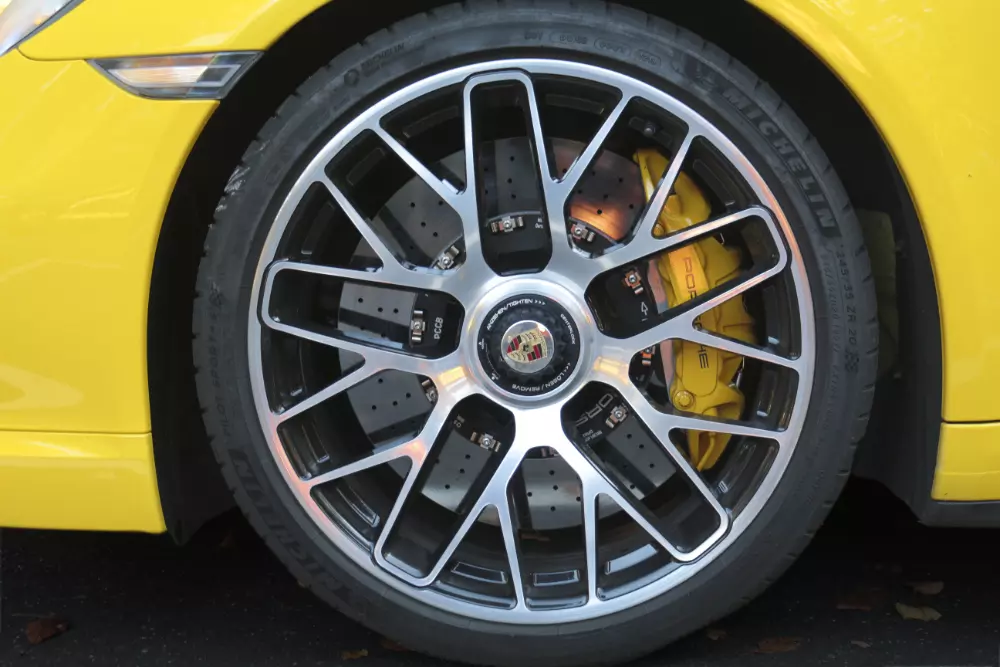Do Porsches hold their value? Find out more about car depreciation and factors that determine the price of used Porsches.
What is Car Depreciation?
Essentially, car depreciation is the difference between the amount your car costs to buy and the amount you receive when you sell or trade in. In most cases, cars take the biggest depreciation hit within the first year after you initially purchase it, before gradually slowing down, creating a depreciation curve. Usually, by the time you reach eight years of ownership, depreciation stops and your car will not lose any more value from its original price.
Depreciation is not usually a key concern for those looking to purchase a brand new car, with considerations such as which has the best handling or fuel economy seemingly being more important factors.
While these are crucial considerations to make sure you aren't throwing your money away, ensuring your purchase of a model that does not rapidly depreciate will save you far more money in the long run.
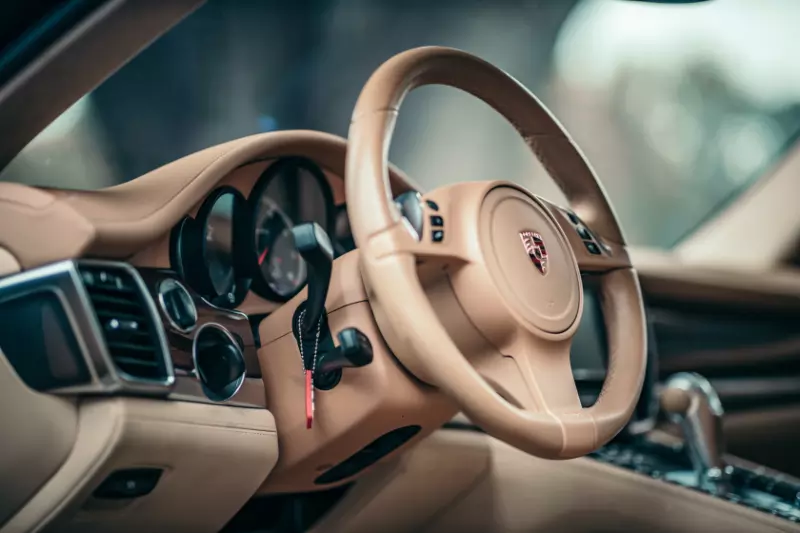
Do Porsches Hold Their Value?
Depreciation is a brutal business, and as soon as new cars hit the road outside the dealership, they lose value.
This is always inevitable, no matter what model of car you buy, but it makes sense to choose manufacturers whose vehicles will not depreciate as dramatically as other brands.
Porsche, for example, produces some of the most luxurious cars on the market. But the key question is: do they hold their value?
Compared to other luxury brands, such as Mercedes or Bentley, Porsches do manage to retain more of their value most of the time. They are a popular manufacturer with a reputation for creating some of the best cars on the market, with rapid performance and reliability being touchstones of Porsche's ethos.
This combination means that their vehicles depreciate at a slower rate, and, according to many used Porsche car dealerships, they continue to have the best resale value.
Factors That Determine The Price Of Used Porsches
There are a few key factors that influence the resale price of Porsches:

Age/Milage
The age of your Porsche, and how many miles it has driven, are two of the biggest factors affecting the resale value of your car. Older Porsches, aside from beloved classics, always lose value as new models are produced and distributed to replace them.
Older cars also mean expired warranties, which may scare any potential buyers away, given that if issues occur, they will have to pay for repairs out of their own pocket.
More mileage is also likely to scare away any potential buyers, given that the more distance your Porsche has covered, the higher the chance that there is significant wear and tear to the vehicle. Therefore, low mileage cars often fetch the best prices.
But this is not always the case. For example, a Porsche with 100,000 miles on the clock but an up-to-date and complete service history may sell better than a younger model with a sketchier service history.

Condition
While the age and mileage of your Porsche is a good indicator of its condition, the two factors are not synonymous when considering its resale value. There is no reason why you could not find older models of Porsche that have been well cared for and are in excellent condition.
Equally, you could easily find newer model Porsches that have been treated horribly and are covered in damage.
The condition of your Porsche when it is being inspected makes all the difference. Cars with lots of visible damage will naturally be less enticing to buyers, hindering the maximum price you could charge when selling.
Things such as scratches, dents, damaged interior electronics or seat upholstery will all damage your chances of getting a good list price when selling your used cars.

Colour
Again, the colour of your Porsche is not something you would consider when attempting to determine the value of your car upon resale.
Used car dealers agree that plainer shades, such as white, black or grey, or standard colours, such as blue, sell the best. Alternatively, off-hand colours, such as yellow or green, might not sell as successfully.
However, some classic Porsche models are favoured in certain colours. Examples of these would be the 911 Carrera, which is often favoured in the classic white colour.
Additionally, The 1960s Porsche 901 is often preferred in yellow. Having one of these classic cars in these specific colours can dramatically enhance their resale value.

Service History
Having a comprehensive and up-to-date service history for your Porsche is essential if you want to achieve a good resale price.
Alongside being able to demonstrate that your car has undergone regular services, you should make an effort also to show that these services were conducted by reputable engineers or mechanics, preferably ones that specialise in Porsche engineering.

Modifications
Making aftermarket modifications to your Porsche is a sure-fire way of reducing its value. Used car buyers and dealers alike believe that upgrades and modifications increase the wear and tear your vehicle suffers while driving it, potentially dissuading them from making a purchase.
Additionally, insurance providers are far less like to offer any form of coverage if your Porsche has aftermarket mods. These can be the smallest thing, such as custom alloys or a new stereo system.
Which Porsche Models depreciate the LEAST?
While all Porsche cars can hold their value well, certain models do this better than others:
Porsche 911
The Porsche 911 is one of the world's greatest sports cars and one of the manufacturer's most iconic vehicles, making it an incredibly popular favourite amongst enthusiasts.
This popularity is mainly due to the 911 being the most practical sports car for your day-to-day commute.
They also contain storage space, a feature often overlooked in other sports cars. There are also great customisable options for the 911, meaning fans can choose the perfect Porsche to suit their particular tastes.
There is also a great demand for classic cars these days, pushing 911 models, such as the 996 and the 964, into high demand.
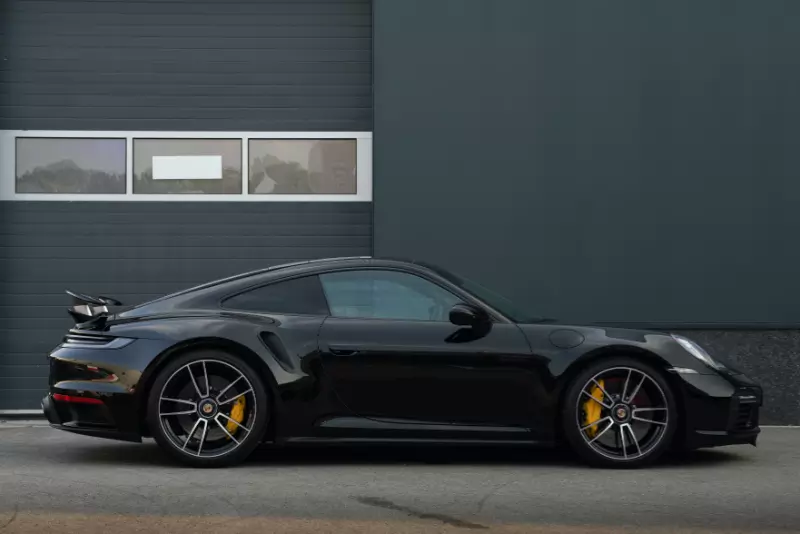
Owners of these particular models have seen up to a 10-fold increase in the value of their vehicles.
However, this is not exclusive to classic Porsche 911 models. Newer 911s are also extremely good at holding onto their value, with the average depreciation over three years being just 23% - one of the lowest in the sports car segment.
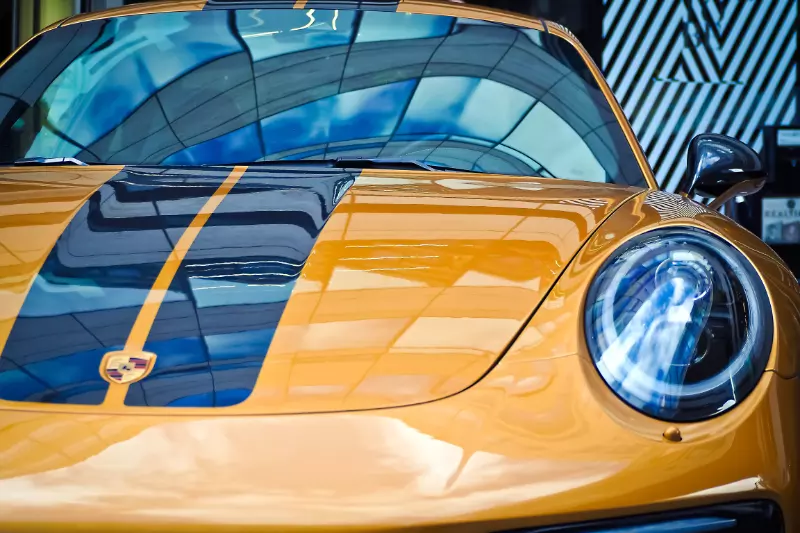
Porsche 718 [Boxster/Cayman]
Many people felt that the 911 was too expensive - so Porsche gave them the 718 Boxster. You can think of the Boxster as the entry-level Porsche, as most people did, causing it to outsell the 911.
The Porsche Cayman was introduced in 2006 as the younger brother of the Boxster: the fresh new coupe to the popular convertible.
Some critics have noted that the Boxster and Cayman, while supposedly offshoots of the same idea, actually cater to different types of drivers.
For example, the Cayman has a stiffer chassis and a top speed of 188mph, making it popular with orthodox Porsche fans who don't have the financial power to snag a 911.
The Boxster, on the other hand, generates a more modest 187mph and is considerably more affordable as Porsches go.
Despite this, both the Boxster and Cayman are great luxury vehicles that are also friendly to your wallet. Like all Porsches, they also hold on to their value if you ever decide to sell them on again.
According to 3-year depreciation data, Boxsters only lose 28% of their value, while the Cayman sheds 27%. These two Porsche models were also ranked 2nd and 3rd best for resale value in 2020 by Kelley Blue Book.
Porsche Macan
The Porsche Macan is a true all-rounder, often compared to the bigger Cayenne SUV. Being an all-rounder, it is easy to see why the Macan appeals to many different drivers.
As one of the best family SUVs out there, families have grown to love the Macan for its acres of interior room and real driving pleasure.
It also has plenty of storage space, making it perfect for trips to the shops and holidays.
The Macan also sparks a twinkle in the eyes of high-performance car enthusiasts, boasting an impressive top speed of 167 mph for a small SUV, along with excellent handling.
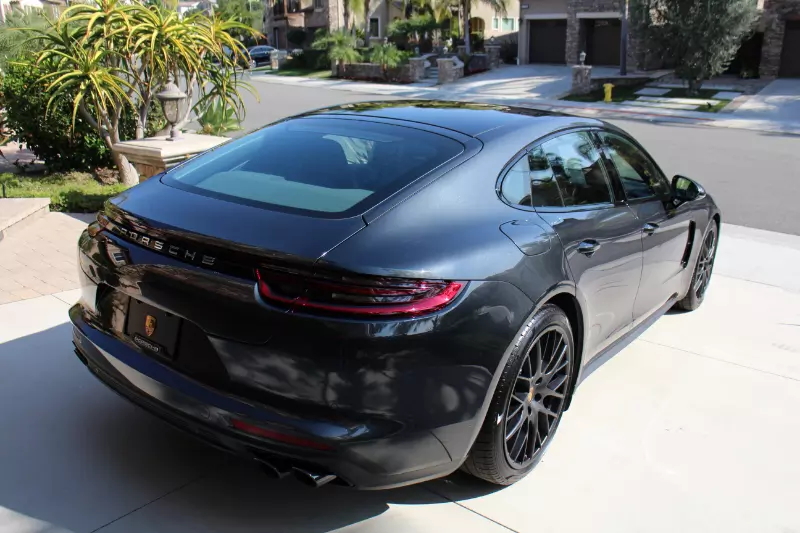
The overall blend of strong performance, nimble handling and comfort have made the Macan one of Porsche's best-selling models, leading to better-than-average resale prices.
They can typically hold on to over 50% of their original value after five years of ownership.
Which Porsche Models Depreciate The FASTEST
While all Porsches have great resale value, there is a selection of models that do depreciate more than others:
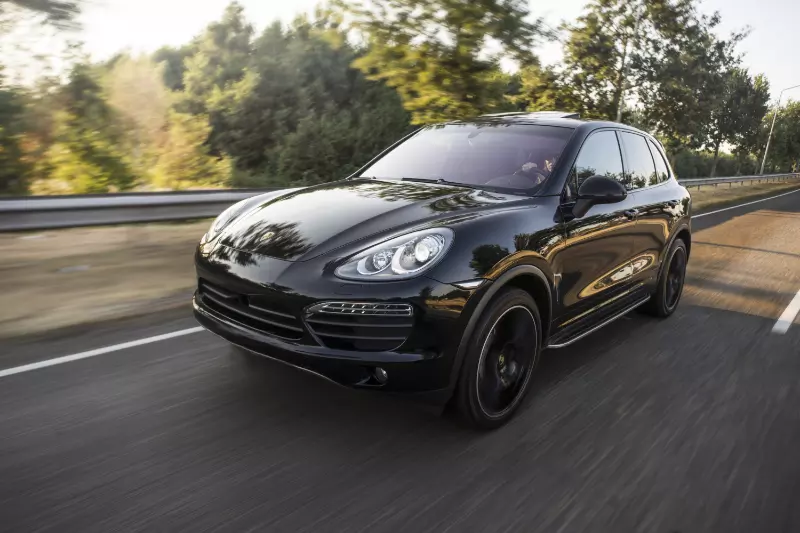
Porsche Cayenne
Alongside the 911, the Porsche Cayenne is one of the manufacturer's most entertaining sports cars. Many critics and Porsche fans criticised the move to create a line of SUVs, waiting for the Cayenne to fail.
To their surprise, there were plenty of car buyers who found the promises of comfort and sprightly performance that the Cayenne provided very attractive, with it becoming Porsche's second-best-selling car.
Despite these positives, the Cayenne has one of the worst resale values of any Porsche model.
Average depreciation three years after the initial purchase runs shockingly up to 44%, making it one of the fastest depreciating vehicles that Porsche produce.
Some have suggested that this is due to the popularity of the Cayenne, meaning is a surplus of them on the second-hand market, driving their prices down. Other factors creating these large depreciation rates include the Cayenne being a luxury SUV, a category of car that sees lower resale values across the board.
Additionally, these vehicles can be expensive to maintain, meaning second-hand buyers are less likely to purchase an outdated luxury SUV that requires so much care and attention. However, the Cayenne is still a Porsche, so while its depreciation may seem dramatic, it is still better than many other luxury SUVs.
Porsche Panamera
Porsche's luxury sedan, the Panamera, completes the triumvirate of their most innovative vehicles.
This is the third best-selling vehicle the manufacturer has ever produced, with station wagon and hatchback variants of the Panamera also available.
It offers great performance, with over 300 horsepower, unless you opt for the Turbo S E-Hybrid Executive, producing up to 680 horsepower.
However, in a similar story to the poor Cayenne, the Panamera's designation as a "luxury" vehicle significantly affects its resale value.
The three-year depreciation rate for the Panamera model Porsche is just over 55% - the fastest depreciation rate of any Porsche.

How Can I Reduce Depreciation On My Porsche?
Depreciation is a nightmare every car owner has to face. Fortunately, however, there are steps you can take to protect your Porsche's resale value for the future, including:
Ensuring that your Porsche is always in good condition, conducting regular services and checks to make sure it is in its optimal condition.
Use your car safely and within the law to reduce the chances of wear and tear.
Avoid making modifications of any kind to your Porsche vehicle.
Choose universally plain colours that everyone likes when purchasing your car initially.
Ensure you have complete, detailed and up-to-date service records for your vehicle.
If you want to find out more about Porsche servicing and repair in Maidstone and Kent get in touch today.

